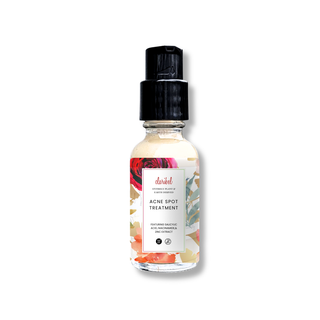
Skin Care Beauty Masks: 12 Ingredients To Level Up Your Skin
In today's fast-paced world, it's easy to get caught up in the hustle and bustle of everyday life. However, it's crucial to take a step back and prioritize self-care, especially when it comes to our beauty routines.
Self-care is about nourishing not just our bodies but also our minds and souls. It's about taking the time to invest in ourselves and to indulge in activities that make us feel good.
When it comes to self-care, one aspect that often gets overlooked is skin care. Our skin is our largest organ, and it deserves the utmost care and attention. Incorporating a skin care beauty mask into your beauty routine can be a game-changer in achieving healthy, glowing skin.
These masks are specifically formulated to address various skin concerns and provide targeted solutions. Whether you're looking to hydrate, brighten, or rejuvenate your skin, there's a mask out there for you.
Our Pineapple Enzyme Refining Mask is a great way to gently slough away dead skin and bring out a radiant glow.

What is a Skin Care Beauty Mask and How Do They Work?
Skin care masks are topical treatments that are applied to the face to address specific skin concerns. They come in various forms, including sheet masks, clay masks, gel masks, and cream masks. Each type of mask works differently, but they all have the same goal – to improve the overall health and appearance of your skin.
Tips for Using Natural Skin Care Beauty Masks
To maximize the benefits of your natural beauty masks, consider the following tips:
Patch Test
Always perform a patch test before applying a new mask to your entire face. This will help you determine if you have any sensitivities or allergies to the ingredients.
Cleanse Before Application
Start with a clean face to ensure that the mask can penetrate the skin effectively. Use a gentle cleanser to remove any makeup, dirt, or oil.
Follow with Moisturizer
After rinsing off the mask, apply a moisturizer to lock in hydration and nourishment. This step is crucial for maintaining your skin's moisture balance.
Frequency of Use
Depending on your skin type and the specific mask, you can use natural beauty masks as often as a few times a week or still reap benefits from once week - depending on your skin type. Listen to your skin and adjust the frequency as needed.
The Allure of Natural Ingredients
Natural ingredients are the cornerstone of effective skin care beauty masks. Unlike their synthetic counterparts, which may contain harsh chemicals, natural masks harness the power of plants, fruits, and other organic materials. This approach not only ensures that your skin receives the nourishment it craves but also minimizes the risk of irritation and adverse reactions.
Benefits of Natural Ingredients
- Gentle on the Skin: Natural ingredients are typically less irritating than synthetic ones, making them suitable for all skin types, including sensitive skin.
- Rich in Nutrients: Many natural ingredients are packed with vitamins, minerals, and antioxidants that promote skin health and vitality.
- Eco-Friendly: By choosing natural ingredients, you contribute to a more sustainable beauty routine, reducing your carbon footprint and supporting environmentally friendly practices.
 12 Skin Care Beauty Mask Ingredients You’ll Want to Seek for Specific Skin Care Needs
12 Skin Care Beauty Mask Ingredients You’ll Want to Seek for Specific Skin Care Needs
Clay. There is such a wide variety of amazing clays that can be included in a mask, and almost all of them offer an abundance of minerals, vitamins and nutrients. If you’re looking for a gentle action clay, white kaolin is going to be perfect. You can branch out into some more sophisticated options, like glacial clay – which is one of our favorites. Glacial clay is 100% natural sourced from a deposit that has recently been discovered in the Southern Alps of New Zealand. Glacial Clay rejuvenates dull skin, improves its appearance, helps to balance skin tone and leaves the skin feeling softer yet firmer.
Plant & Fruit Enzymes. We absolutely love enzymes, and the magical thing about it, is that it is safe for all skin types. Enzymes break down the keratin protein in the upper layer of the skin, which bonds dead skin cells together. Without this the dead skin can gently slough off. This results in smoother, softer skin and also helps diminish scars and pigmentation.
Vitamin C. Vitamin C promotes collagen production, which has the potential to thicken the dermis, diminish fine lines, and is essential for firm, youthful skin. You can give your skin a big dose of vitamin c with a mask that is left on for a period of time, and you’ll be left with glowing, healthier looking skin.
Hyaluronic Acid. Due to its capacity to retain large amounts of water, skin can receive the extra moisture it needs with a mask that contains hyaluronic acid, as this will help prevent the development of wrinkles, and fills in already present wrinkles to reduce their appearance.
Charcoal. Activated charcoal–when used in a face mask–binds to dirt and helps pull it out of your pores, making them less visible (it's the oil and dirt that makes them appear bigger). This leaves your face feeling fresh.
Salicylic Acid. Salicylic acid is a beta hydroxy acid. It's well-known for reducing acne by exfoliating the skin and keeping pores clear. Salicylic acid works great for taming acne and blackheads. It can also help prevent future breakouts.
Tea Tree Oil. Tea tree oil is a popular choice for treating acne because of its anti-inflammatory and antimicrobial properties. It's thought to calm redness, swelling, and inflammation. It may even help to prevent and reduce acne scars, leaving you with smooth, clear skin. Don’t ever put tea tree oil directly on your skin, or it can produce a surface burn. It’s best when it’s included in a formula that is accompanied by other awesome ingredients.
Honey. Raw honey helps balance the bacteria on your skin, which makes it a great product to use for acne. ... Raw honey is also a natural exfoliator, which means applying it to your face takes off dry, dull skin and reveals new skin cells underneath.
Cinnamon. Cinnamon has anti-fungal, antioxidant and antibacterial properties that make it the perfect solution for acne-free skin.
Lactic, Malic, and/or Glycolic Acids. These acids can brighten, smooth, and even skin tone, while also making it look firmer. It helps reduce the appearance of fine lines, wrinkles, and dark spots. How does it work exactly? It exfoliates by loosening the bonds between dead skin cells to reveal a more radiant complexion.
Sulphur. It is the third most abundant mineral in the human body. Sulfur has antibacterial effects against the bacteria that cause acne. It also might help promote the loosening and shedding of skin. This is believed to help treat skin conditions such as seborrheic dermatitis or acne.
Dead Sea Mud. Incredibly mineral rich and strong ability to heal. Well known for killing acne causing bacteria. The minerals in mud are highly effective for absorbing oil and for toning the skin. Mud is often used to detoxify and tone skin and is used as an anti-inflammatory agent for skin disorders.
Our Pineapple Enzyme Refining Mask is a great way to gently slough away dead skin and bring out a radiant glow.
Tips on How to Benefit Most from Your Skin Care Beauty Mask
Cleanse before you mask. Applying a skin care beauty mask onto unclean face will prevent the goodness of the mask from penetrating into skin. Before you open a pack of facial mask, cleanse your skin thoroughly to make sure that you rid your face of any grime and impurities – even if you don’t have makeup on.
Don’t overdo it. Time yourself. For most masks, it is not advisable to keep it on for more than 25 minutes, unless it’s considered an overnight mask meant to be worn much longer. We don’t generally recommend sheet masks, as they can absorb the moisture from your skin, causing your skin to dry out more.
You should multi-mask. It’s hard enough to remember to mask at least once a week, so if you find the time to do it, apply masks on different features. For example, apply eye treatments or masks under your eyes, then apply your clay or mud based mask to the rest of your face, and you can even take another step and apply a hydration mask to your neck and chest area. You might look weird, but it’s a great way to accomplish all of your face mask goals this way.
Five Star Product Recommendation
Our Pineapple Enzyme Refining Mask is a great way to gently slough away dead skin and bring out a radiant glow:
Frequently Asked Questions
What are the benefits of using a skin care beauty mask?
Natural beauty masks offer a range of benefits, including deep cleansing, exfoliation, detoxification, antioxidant protection, and soothing effects. They can improve skin texture, promote a radiant complexion, and provide essential nutrients.
Can I use a natural mask if I have sensitive skin?
Yes, many natural ingredients are gentle and suitable for sensitive skin. However, it's essential to perform a patch test before applying a new mask to ensure you don't have any adverse reactions.
How often should I use a beauty mask?
The frequency of use depends on your skin type and the specific mask. Generally, using a natural mask once or twice a week is recommended for optimal results.
Are homemade masks as effective as store-bought ones?
Homemade masks can be just as effective as store-bought options, especially when made with high-quality, natural ingredients. The main concern for most people is that the ingredients can end up being more expensive than just purchasing a mask that has the qualities you'd like. Be sure to choose ingredients or a product that addresses your skin care concerns.
What ingredients should I avoid in skin care beauty masks?
Avoid using ingredients that may irritate your skin, such as synthetic fragrances, alcohol, and harsh exfoliants. Always opt for gentle, natural ingredients that nourish and soothe the skin.
Conclusion
A skin care beauty mask might be the most enjoyable part of your routine, and when you feel better, you look better. Find some masks to accomplish your skin care goals, in the comfort of your own home.





